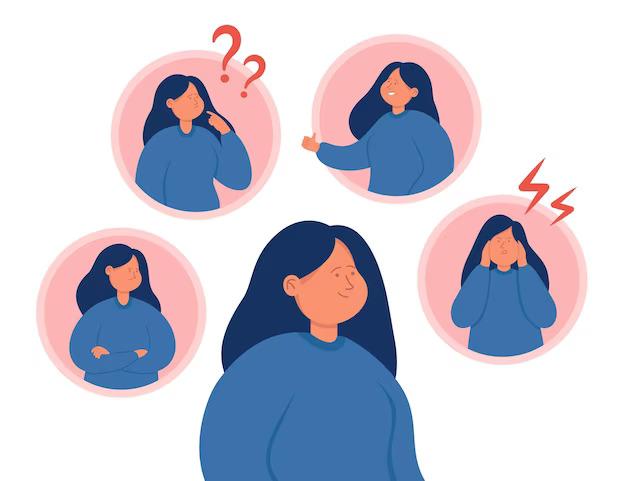How to stop having negative thoughts that keep you up at night

TalktoAngel
Life in the modern world is difficult; worries about money, housing, employment, relationships, and leading a “successful” life are widely mentioned as sources of anxiety for many people. Sometimes the effects of our worries are actual. We over think everything and are unable to fall asleep.
People who experience stress, anxiety, depression, and insomnia frequently report that, more than any kind of physical discomfort or pain, racing, intrusive (unwanted) thoughts make it difficult for them to fall asleep.
When you’re under stress, your negative thought patterns might be keeping you up at night. You struggle to fall asleep because of the conversations, tasks, deadlines, and decisions from the day.
When you have anxiety, your thoughts may race for a variety of reasons, such as when you’re worried about something at home or at work. Insomnia may occasionally result from this experience if your mind is racing with worry right before bed.
There are many reasons why people have trouble falling and staying asleep, or experience insomnia. Along with chronic pain, depression, hormonal changes, medications, and medical conditions like thyroid disease, acid reflux, or asthma can also be the causes of anxiety and stress.
There Many reason negative thoughts points:
- Embrace your thoughts
As odd as it may sound, ignoring your intrusive thoughts can actually be a surprisingly effective way to deal with them.
Accepting that you’re over thinking or intrusive thoughts are keeping you up at night is the key in this situation. Because their impact is diminished when you don’t think about the ramifications or struggle against your own thoughts, they are less likely to awaken you and keep you up at night.
-
Make a list of your worries
Keep a notepad and pen by your bed so you can make notes any worries that are on your mind right now. This isn’t the same as structured worry time before bed because you’re just getting your worries out of your head so your mind can rest, not coming up with solutions.
-
Practice 4-7-8 Breathing
You may already be aware of the benefits of deep breathing for reducing stress, but it can also aid in sleep. Your heart rate needs to slow down for you to fall asleep. One of the best ways to accomplish this is through breathing exercises.
Breathe in for four counts, hold for seven, and then exhale for eight. Repeat this at least five to seven times to slow your heart rate.
-
Think about the positive aspects of your life
When you’re anxious, the power of your imagination can assist in bringing you to a state of ease.
You can strengthen your connection to the positive emotions that are already present inside of you by visualizing happy occasions and relationships in your life, but you have to work at doing so once the anxious thoughts or feelings have already surfaced.
-
Disconnect
The internal clock in your body that signals when it’s time to sleep is called the circadian rhythm. There are many factors that can disrupt these internal rhythms, including insufficient sunlight and excessive blue light from computer screens. As a result, switch off all screens a few hours before bed, including: computers, TV and phones.
Disengage from social media and leave your work behind as well. Although there will always be more to do, you have already completed your tasks for today. The best way to get ready for sleep right now is to unwind.
-
Relax
After removing the screens, spend the time relaxing activities, such as:
- Read
- Tune in to music
- Stretch
- Pray or meditate
You might discover that creating a bedtime routine that includes some of these actions signals to your body that it’s time to unwind.
You might want to further incorporate some other relaxation techniques in the hours before bed or if you wake up in the middle of the night, including:
- Exercises for the breath
- Steadily relaxing the muscles
- Guiding imagery
You may be able to get distracted by these activities from the effort required to get or stay asleep. Additionally, they can calm racing thoughts. Numerous straightforward methods are available.
It’s also important to note that everyone occasionally has trouble falling asleep. However, if sleepless nights start to become more frequent than infrequent, please consult the top online therapist. There are options for getting online counseling or guidance from a sleep specialist if you’re suffering from insomnia.
So, if you still have trouble sleeping, consult the top online mental health resource. You may benefit from cognitive behavioural therapy for insomnia (CBTI), anxiety medications, or sleeping aids for insomnia. TalktoAngel has the most experienced and skilled online therapists, and you can schedule an appointment with one of them.
You can click to see the websites of the best mental health professionals. You can still search regardless of your search criteria. “online counseling” or online counselling Employ the search terms.




